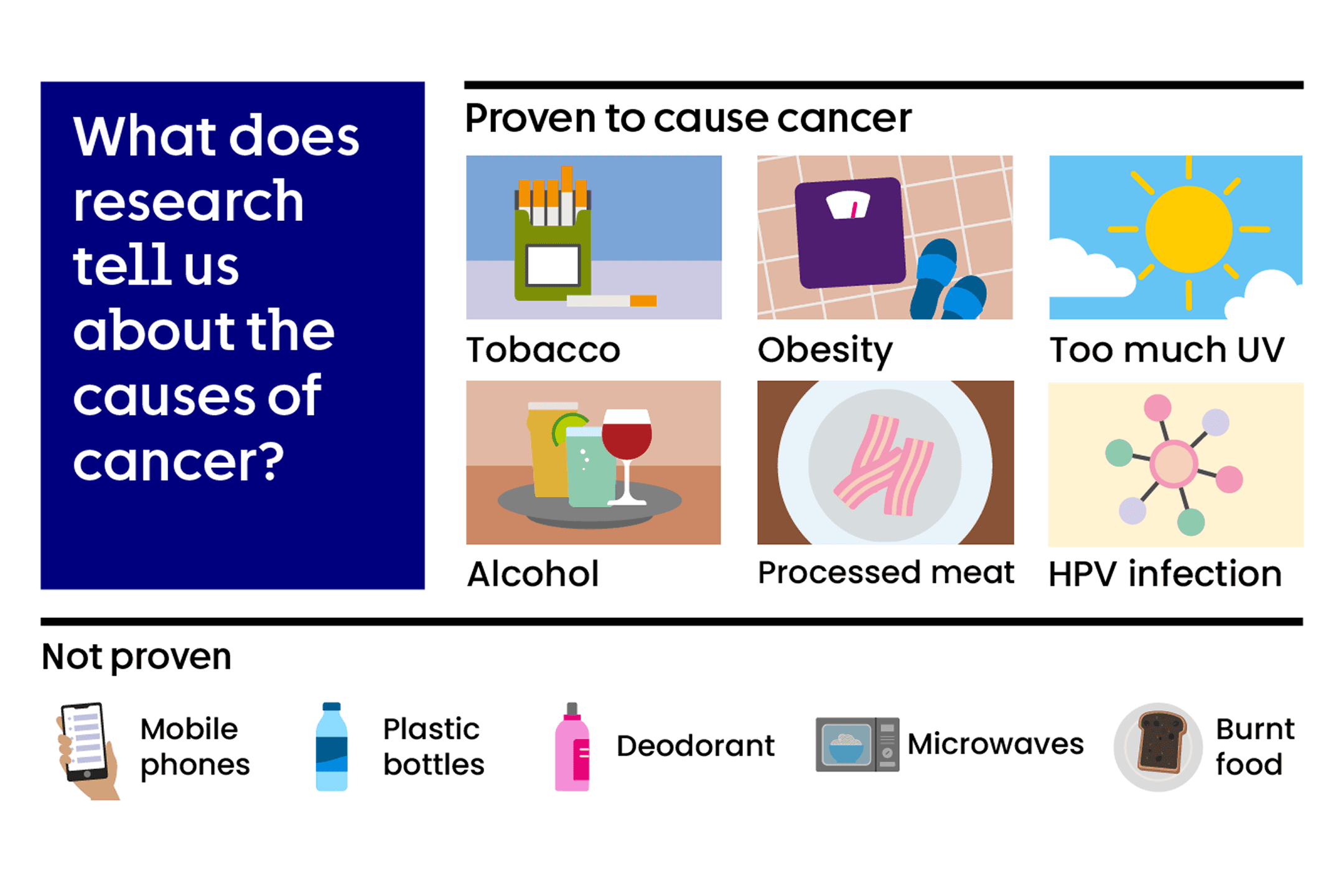Cancer myths and common questions
We often hold our phones to our heads, or keep them close by in pockets or bags. Some people are worried that the radiation from mobile phones can cause cancer, especially brain cancer. Or that keeping phones in a bra will lead to breast cancer.
But the type of radiation that mobile phones and phone masts use doesn’t have enough energy to cause cancer by damaging DNA.
Using mobile phones does not increase your risk of cancer.
Mobiles use a type of electromagnetic radiation called radiofrequency radiation (radio waves). It's a weak form of radiation, the same type that radios, televisions and microwave ovens produce. Radio waves do not have enough energy to damage DNA. So there’s no good explanation for how radio waves could cause cancer.
Some studies claim that mobile phones could increase cancer risk. But a lot of these studies are in animals, and some use unrealistically high levels of radiation. So they cannot reliably tell us about cancer risk from mobile phones in the real world.
When looking at the biggest studies of people and mobiles there is no consistent association between mobile phone use and cancer. Overall, there’s no reliable evidence from studies of people that mobile phones increase the risk of cancer.
There is also no reliable evidence that 4G and 5G mobile networks cause cancer. Phone masts that transmit mobile signals (mobile base stations) use the same radiofrequency radiation as mobile phones.
Although 4G and 5G mobile networks are higher energy than older networks, it’s still not enough energy to damage DNA.
As mobile phones and signals are still relatively new, research in this field is ongoing in case of any long-term health effects.
No, Wi-Fi and Bluetooth don’t cause cancer. Wireless technologies and services also use radio waves.
There’s no evidence to suggest that wireless technology increases cancer risk. This includes things like fitness trackers, smart watches and wireless headphones too.

There are many myths, questions and hot topics when it comes to cancer risk. But thanks to decades of research into preventing cancer, we know proven ways you can lower your risk.
These include not smoking, keeping a healthy weight, staying safe in the sun, cutting down on alcohol and eating a healthy, balanced diet.
Last reviewed: 20 Dec 2024
Next review due: 20 Dec 2027
Questions about cancer? Call freephone 0808 800 40 40 from 9 to 5 - Monday to Friday. Alternatively, you can email us.